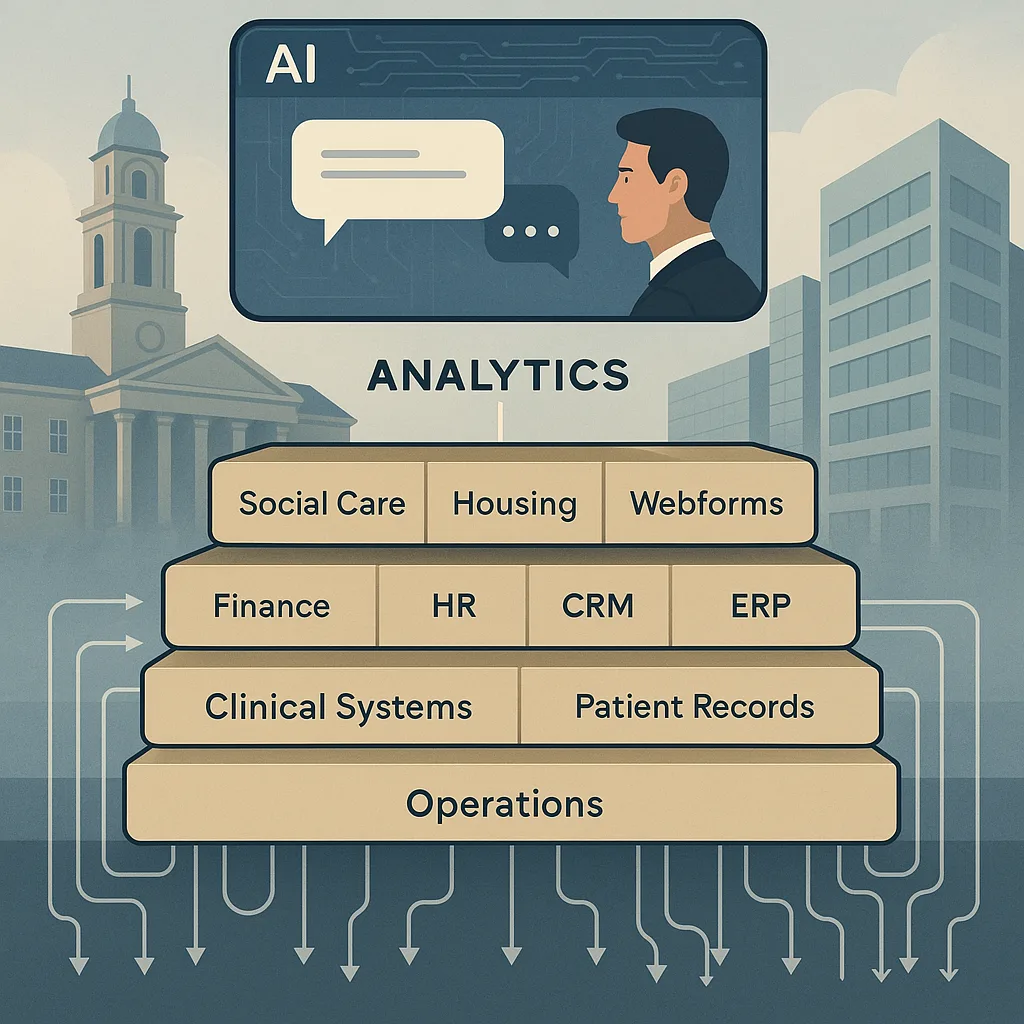
In today’s economic climate, local councils face growing pressure to manage housing services effectively while navigating a perfect storm of rising costs and complex service delivery challenges. Temporary accommodation (TA) costs, for instance, are soaring across the UK. In 2023 alone, the cost to councils for providing TA exceeded £1.6 billion, up by a third since 2022, with no signs of slowing down. This unsustainable trajectory calls for innovative solutions—and itelligent-i believes that data, analytics, and AI offer a powerful way forward.
One of the greatest challenges councils face is the lack of accurate, long-term forecasting for housing needs and spend. Housing services must balance immediate demands with future planning, and this is where data analytics shines. Analytics can allow councils to understand the detail of demand and cost currently facing the authority, and then forecast housing demand based on demographic shifts, economic indicators, and housing stock availability. This foresight enables more strategic spending and planning, helping to prevent last-minute scrambles for expensive temporary accommodation.
Additionally, analytics can identify patterns in household vulnerabilities, enabling councils to implement early intervention strategies. By proactively identifying those at risk of eviction or homelessness, councils can divert resources into preventative measures, reducing the reliance on costly temporary solutions.
In parallel, many councils are also grappling with challenging facilities management (FM) contracts. These contracts often cover everything from maintenance and repairs to cleaning and security, all of which have a direct impact on housing standards. Data can streamline contract management by highlighting performance gaps and inefficiencies. For example, a data-driven approach could assess contractor performance against key indicators like speed of repairs, cost-effectiveness, and resident satisfaction, ensuring FM services are held accountable and value for money is achieved.

AI, combined with data analytics, can enhance this by automating routine monitoring and flagging potential issues before they escalate, helping to ensure housing stock meets the Decent Homes Standard. This is particularly important as councils are under increasing scrutiny to ensure homes are safe, well-maintained, and energy-efficient.
A critical area where data and AI can make a transformative difference is in keeping vulnerable people in their homes, particularly through community care. With an ageing population and increasing health vulnerabilities, the demand for community-based solutions is rising. Data analytics can provide councils with the ability to track and assess the health, mobility, and well-being of residents, allowing for more effective community care planning.
AI-driven tools, such as machine learning algorithms, can also predict when a resident is at risk of needing additional support. This empowers councils to tailor care packages and social services to the needs of individuals, avoiding the need for costly institutional care and improving residents’ quality of life. By keeping people at home for longer, councils not only reduce costs but also maintain community cohesion and ensure a more dignified standard of living for all.
The use of data, analytics, and AI isn’t just a temporary fix; it’s a long-term solution to many of the challenges councils face in housing and community care. itelligent-i is at the forefront of helping local authorities harness these technologies, providing them with the tools to plan better, manage smarter, and ultimately improve the lives of their residents.
In a time when councils must find new ways to do more with less, embracing these technologies offers a clear path to sustainability, efficiency, and better outcomes for communities.



